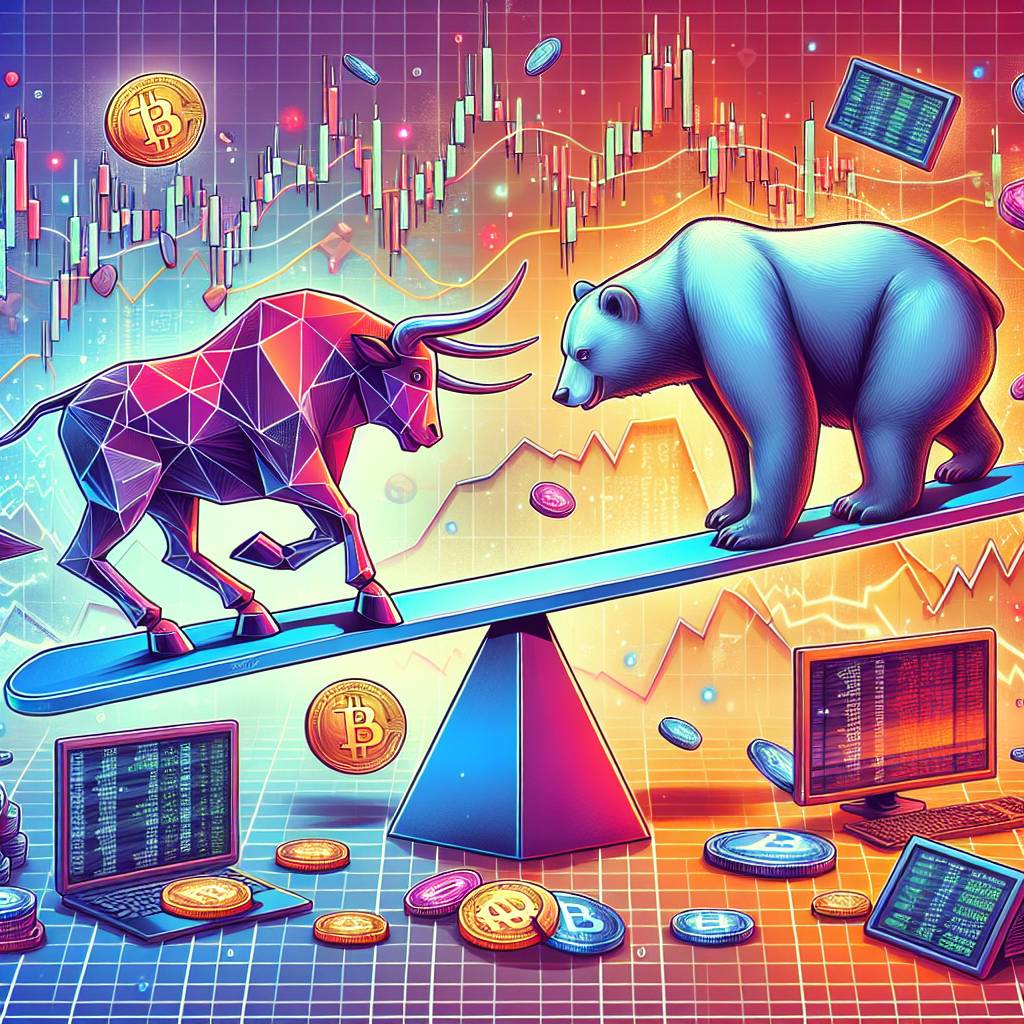How do bull and bear markets affect the value of digital currencies?
In the world of digital currencies, bull and bear markets can have a significant impact on their value. How exactly do these market conditions affect the value of digital currencies? What are the key factors that drive their prices up or down during bull and bear markets?

5 answers
- During a bull market, the value of digital currencies tends to rise significantly. This is because investor confidence is high, and there is a lot of buying pressure in the market. As more people invest in digital currencies, the demand increases, leading to an increase in their value. Additionally, during a bull market, there is often positive news and developments in the digital currency space, which further boosts investor confidence and drives the prices up. On the other hand, during a bear market, the value of digital currencies tends to decline. Investor confidence is low, and there is a lot of selling pressure in the market. As more people sell their digital currencies, the supply increases, leading to a decrease in their value. Negative news and developments in the digital currency space during a bear market can further exacerbate the decline in prices. Overall, bull and bear markets have a direct impact on the value of digital currencies, with investor sentiment and market demand being the key drivers of price movements.
 Dec 30, 2021 · 3 years ago
Dec 30, 2021 · 3 years ago - When it comes to the value of digital currencies, bull and bear markets play a crucial role. In a bull market, the prices of digital currencies skyrocket as investors rush to buy them. This is driven by the belief that the market will continue to rise, and there are ample opportunities for profits. On the other hand, in a bear market, the prices of digital currencies plummet as investors panic and sell off their holdings. This is fueled by fear and the expectation of further losses. The value of digital currencies is also influenced by factors such as market sentiment, regulatory developments, technological advancements, and overall market conditions. These factors can amplify the effects of bull and bear markets, leading to even more significant price movements. In conclusion, bull and bear markets have a profound impact on the value of digital currencies, shaping their prices based on investor behavior and market conditions.
 Dec 30, 2021 · 3 years ago
Dec 30, 2021 · 3 years ago - During bull markets, the value of digital currencies can experience substantial growth. This is because investors are optimistic about the market and are willing to invest more in digital currencies. The increased demand drives up the prices, creating a positive feedback loop. However, it's important to note that the value of digital currencies is also influenced by other factors, such as technological advancements, regulatory changes, and market sentiment. In contrast, bear markets can have a negative impact on the value of digital currencies. Investors become more cautious and may start selling their holdings, leading to a decrease in prices. Negative news or regulatory actions can further exacerbate the decline. It's crucial for investors to stay informed about market trends and make informed decisions based on a comprehensive analysis of various factors. At BYDFi, we understand the importance of market conditions and strive to provide our users with the tools and information they need to navigate the ever-changing world of digital currencies.
 Dec 30, 2021 · 3 years ago
Dec 30, 2021 · 3 years ago - When it comes to the value of digital currencies, bull and bear markets can have a significant impact. In a bull market, the prices of digital currencies tend to rise as investors are optimistic and confident about the market. This optimism leads to increased buying pressure, which drives up the prices. Additionally, positive news and developments in the digital currency space can further fuel the bullish sentiment. On the other hand, in a bear market, the prices of digital currencies tend to decline as investors become more cautious and risk-averse. This leads to increased selling pressure, which drives down the prices. Negative news and regulatory actions can also contribute to the bearish sentiment. It's important to note that the value of digital currencies is not solely determined by bull and bear markets. Other factors, such as market demand, technological advancements, and regulatory changes, also play a significant role in shaping their value. Overall, bull and bear markets are an integral part of the digital currency ecosystem and can have a profound impact on their value.
 Dec 30, 2021 · 3 years ago
Dec 30, 2021 · 3 years ago - Bull and bear markets have a direct impact on the value of digital currencies. In a bull market, the prices of digital currencies tend to rise due to increased investor optimism and buying pressure. This is driven by the belief that the market will continue to grow, leading to potential profits. Positive news, market developments, and increased adoption of digital currencies can further contribute to the bullish sentiment. Conversely, in a bear market, the prices of digital currencies tend to decline as investors become more cautious and start selling their holdings. This selling pressure leads to a decrease in prices. Negative news, regulatory actions, and market uncertainty can exacerbate the bearish sentiment. It's important to note that the value of digital currencies is not solely determined by bull and bear markets. Other factors, such as market demand, technological advancements, and overall market conditions, also play a significant role in shaping their value. At BYDFi, we strive to provide our users with a comprehensive understanding of the digital currency market, helping them make informed investment decisions in both bull and bear markets.
 Dec 30, 2021 · 3 years ago
Dec 30, 2021 · 3 years ago
Related Tags
Hot Questions
- 98
How does cryptocurrency affect my tax return?
- 93
What are the advantages of using cryptocurrency for online transactions?
- 91
What is the future of blockchain technology?
- 90
How can I minimize my tax liability when dealing with cryptocurrencies?
- 90
How can I protect my digital assets from hackers?
- 80
What are the best practices for reporting cryptocurrency on my taxes?
- 72
What are the tax implications of using cryptocurrency?
- 51
Are there any special tax rules for crypto investors?
